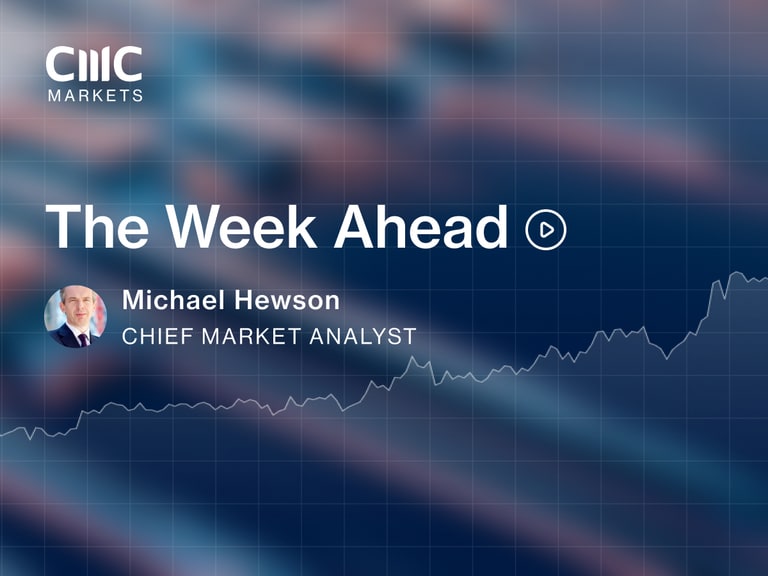
Here’s our pick of the top three economic and company events in the week commencing Monday, 15 January:
UK average earnings (November), CPI (December)
Tue 16 Jan, Wed 17 Jan: The UK consumer price index increased 3.9% in the year to November, easing from 4.6% a month earlier and down from a 2023 peak of 10.4% in February. The slowdown in the headline rate of inflation has prompted speculation that the Bank of England might cut interest rates sooner than expected. While falling inflation is very much welcome, a chunk of the recent decrease was driven by falls in petrol prices. Elsewhere in the UK economy, inflation remains sticky. Food price inflation, for example, was running at 6.6% in December, while services inflation was at 6.3%, and core inflation, which excludes volatile items like food and energy, rose 5.1% in the year to November. Meanwhile, pay (excluding bonuses) was up 7.3% year-on-year in the three months to October. The upcoming pay and inflation figures are likely to provide a guide as to when the Bank of England might look to cut rates, though the key test for markets won’t be whether inflation fell in December but whether there’s a rebound in January. And as long as pay growth remains above 7%, the Bank of England is unlikely to want to cut rates. It’s also worth remembering that at the Bank’s last meeting in December, three members of the nine-person Monetary Policy Committee voted to raise interest rates by a quarter of a percentage point. It may therefore take more than a further slowdown in inflation for those three MPC members to vote for a rate hold, let alone a rate cut. They’ll want to see pay growth coming down too. Expectations are for pay growth to have slowed to 6.7% in the three months to November, and for headline CPI to have dropped to 3.8% in December.
Ocado Q4 results
Tue 16 Jan: The Ocado share price saw some big swings last year, falling to a low of 342p in June before surging to a peak of 1,017p in July, then finishing the year roughly back where it began – at 758p. During that summer surge there was speculation that Amazon might be readying a bid for the business, but the rumours came to nothing. In recent months analysts have been paying close attention to Ocado’s robotics division as it looks to increase automation at its various fulfilment centres around the UK. In November Ocado agreed a deal to sell its robotic technology to Canadian health care provider McKesson Corp. Meanwhile, the grocery division’s joint venture with Marks & Spencer appears to be delivering an improvement in revenues after a slow start.
China GDP (Q4), retail sales (December)
Wed 17 Jan: China’s economy reportedly grew 1.3% in Q3, despite weak domestic demand during the quarter. More recently, retail sales growth picked up in October (+7.6% year-on-year) and November (+10.1% y-o-y), while industrial production expanded 6.6% y-o-y in November. However, evidence of weak demand persists. China’s consumer and producer price indices are in deflation territory as the authorities wrestle with the high levels of debt run up by leading real estate developers such as Evergrande, Country Garden and Zhonghzi. For December, retail sales growth is expected to come in at 11%, soaring from the low base of a year earlier when parts of China were still under strict Covid lockdown rules. Industrial production growth is expected to be more or less unchanged at around 6.3%. More worryingly for the government, GDP growth is expected to have slowed to 0.9% in the fourth quarter.
Here's our pick of the week's other notable economic and company events:
Goldman Sachs Q4 results
Tue 16 Jan: Up until the last quarter of 2023 it hadn’t been a great year for the Goldman Sachs share price. However, a strong rally off the October lows saw the shares finish the year on a positive, closing at a one-year high. A disappointing Q2 trading update saw the bank take a $584m impairment tied to its GreenSky operation, while there was also a $485m charge in respect of real estate write-downs. In seeking to further cast off its foray into retail banking, management finally agreed to sell the division to a private equity group. The bank’s Q3 numbers reflected this, with profits falling to $5.47 a share, a sharp fall from last year’s $8.25 a share. Q3 revenue also declined, slipping to $11.82bn, though this was still ahead of expectations. On the plus side, there was an improvement in the equities division, which grew revenue by 8% from last year, as did investment banking. FICC revenue slowed modestly by 6% to $3.38bn. The bank set aside $7m in respect of credit losses, with the focus this week expected to be very much on the outlook for 2024. For Q4 expectations are for revenue of $11bn with a decline in FICC revenue to $2.6bn, but equities are expected to have seen an improvement in Q4 to $2.26bn. Profit is expected to come in at $4.64 a share, taking total profits for 2023 to $23.72 a share.
Morgan Stanley Q4 results
Tue 16 Jan: A late rally in the last quarter of 2023 saw US bank shares finish the year on a high, and Morgan Stanley was no exception. Its shares recovered from a two-and-a-half year low in October to finish near the July peaks, and end the year up over 9%. The bank reported Q3 revenue of $13.3bn and a profit of $1.38 a share, both of which were slightly ahead of forecasts. Drilling down into the numbers, there were some notable misses. Wealth management fell short at $6.4bn, even as FICC and equities trading revenue was better than expected. Equities trading revenue came in at $2.51bn, with FICC at $1.95bn. For Q4 equity trading is expected to deliver revenue of $2.25bn and FICC is set to reach $1.5bn, with overall revenue expected to rise to $12.85bn. For the full year, revenue is expected to increase to $54.06bn, although higher costs are expected to see profits fall to $5.57 a share. The Q4 results will also be the last set of numbers for James Gorman who is leaving as CEO to be replaced by Edward “Ted” Pick.
US retail sales (December)
Wed 17 Jan: The US consumer has proved to be a resilient beast over the last 12 months. Retail sales fell month-on-month in only three of the last 12 months, most recently in October when there was a monthly decline of 0.2%. In November we saw a rebound of 0.3% month-on-month, confounding expectations of a 0.1% fall. The improvement was mainly driven by a rebound in food services and bars, as well as sales of sporting goods, while sales at gas stations slowed by 2.9%. Despite the resilience in spending, consumers do appear to be cutting back compared to what we saw in Q3, which saw very solid spending patterns. Nonetheless, another positive number could go a long way to seeing markets reprice the likelihood of a Fed rate cut in March, which markets continue to see as a realistic possibility.
UK retail sales (December)
Fri 19 Jan: UK consumer spending saw a big rebound in November after two months of weak demand. Retail sales grew 1 3% month-on-month during the month, comfortably beating forecasts of 0.4%. An improvement in consumer confidence, along with sharp falls in the price of petrol, appear to have prompted a spike in consumer demand. Black Friday sales also helped as shoppers brought forward some Christmas spending. A sharp reduction in the energy price cap in October may also have boosted confidence, along with lower mortgage rates. The rebound in consumer spending has raised hopes that the UK economy will avoid a technical recession. In the last two weeks we’ve seen a number of retailers report strong pre-Christmas trading updates, which augurs well for a positive December retail sales number, following on from the November rebound.
Deliveroo Q4 results
Fri 19 Jan: The Deliveroo share price has advanced significantly from the lows of a year ago when it was languishing near 80p. The company is finally making progress in keeping its costs under control, and is also growing its revenues. When the company reported in Q3 it was very much a case of steady as she goes, with GTV rising 5% to just below £1.7bn. The company maintained its full-year adjusted EBITDA guidance of £60m to £80m. For Q4, revenue is forecast to rise to £534m, which could mean the business breaks even. On full-year revenue, the company is expected to report a record £2.04bn, and could break even when it comes to annual profits. That might send the share price towards the 151p target that Bank of America set when they resumed coverage of Deliveroo back in October.
INDEX DIVIDEND SCHEDULE
Dividend payments from an index's constituent shares can affect your trading account. View this week's index dividend schedule.
SELECTED COMPANY RESULTS
| Monday 15 January | |
| No major scheduled announcements | |
| Tuesday 16 January | Results |
| Goldman Sachs (US) | Q4 |
| Morgan Stanley (US) | Q4 |
| Ocado Group (UK) | Q4 |
| Wednesday 17 January | Results |
| Alcoa (US) | Q4 |
| Charles Schwab (US) | Q4 |
| Gateley Holdings (UK) | Half-year |
| Oxford BioDynamics (UK) | Full-year |
| Safestore Holdings (UK) | Full-year |
| Thursday 18 January | Results |
| Banner Corp (US) | Q4 |
| KeyCorp (US) | Q4 |
| M&T Bank (US) | Q4 |
| Friday 19 January | Results |
| Deliveroo (UK) | Q4 |
| Schlumberger (US) | Q4 |
| State Street (US) | Q4 |
| Travelers Companies (US) | Q4 |
Note: While we check all dates carefully to ensure that they are correct at the time of writing, company announcements are subject to change.
Disclaimer: CMC Markets is an execution-only service provider. The material (whether or not it states any opinions) is for general information purposes only, and does not take into account your personal circumstances or objectives. Nothing in this material is (or should be considered to be) financial, investment or other advice on which reliance should be placed. No opinion given in the material constitutes a recommendation by CMC Markets or the author that any particular investment, security, transaction or investment strategy is suitable for any specific person. The material has not been prepared in accordance with legal requirements designed to promote the independence of investment research. Although we are not specifically prevented from dealing before providing this material, we do not seek to take advantage of the material prior to its dissemination.






















